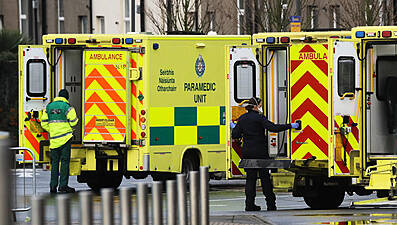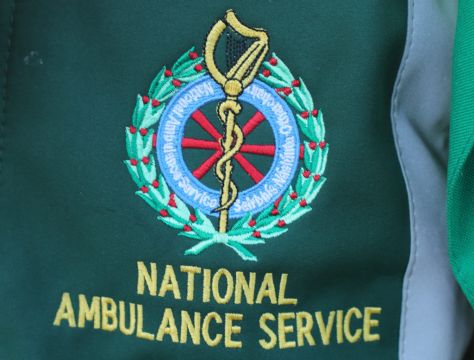Ambulance staff were attacked or harassed on 45 occasions last year with physical assaults, intimidation and threats, and a single case of sexual assault.
A log of incidents reveals twenty direct physical assaults on emergency workers with a further three cases of physical harassment.
There were four cases of verbal assault, three of verbal harassment, and eight incidents logged where ambulance staff were the subject of intimidation or a threat.
Six cases were logged where a person was non-complaint, obstructive, or rude as emergency workers tried to go about their duties.
There was also one case of sexual assault reported in the west of Ireland in June, according to a log released by the National Ambulance Service (NAS).
It showed that fourteen of the 45 incidents took place in the North Leinster region, which covers Dublin, much of the province of Leinster, and some of Ulster.
There were a further 22 cases logged in the western region which comprises Connacht, Donegal, and parts of Munster.
Just nine incidents were recorded in the Southern region, which takes in much of Munster, and the southern parts of Leinster.
Each incident was also ranked according to its severity with twelve of them listed as moderate, and three categorised as minor.
The remainder were logged as “negligible” with no serious incidents having been recorded during the course of 2022.
The data also showed that incidents were at their highest during the summer holiday period, with 19 of the 45 cases logged in June, July, or August.
There was just a single case recorded in May, September, and December, and two cases in November.

A spokesperson for the National Ambulance Service said that their more than 2,000 staff members had dealt with 350,000 emergency calls last year with attacks occurring in only a tiny fraction of cases.
They said: “Ensuring the safety of employees and service users is a priority concern.”
The spokesperson said a HSE dignity at work policy was in place, which aimed to create an environment where staff are treated with dignity and respect.
“[The policy] sets out informal and formal procedures to deal with complaints. This includes NAS staff reporting on the National Incident Management System with each report reviewed by a manager and the level of detail given within the report determining severity rating and follow up where necessary,” they said.







